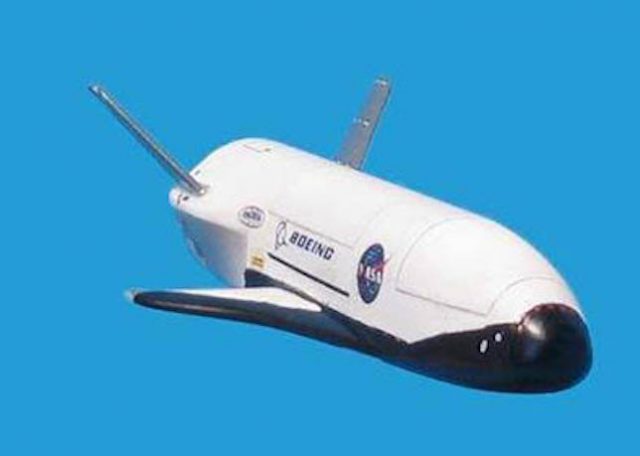WASHINGTON | The U.S. Air Force’s mysterious X-37B space plane returned to Earth on Sunday after completing a secret space mission that lasted nearly two years.
The reusable, unmanned X-37B Orbital Test Vehicle landed at the Shuttle Landing Facility at NASA’s Kennedy Space Center in Florida, an airport used by the U.S. space agency’s Space Shuttle for landing until the program’s end in 2011.
The just-ended mission, known as Orbital Test Vehicle mission 4 (OTV-4), was launched in May 2015 and conducted secret experiments for a total of 718 days while in orbit.
It’s the fourth and longest-running mission for the X-37B program, run by the U.S. Air Force’s Rapid Capabilities Office. The program began as a NASA project in 1999 but was later transferred to the Pentagon.
“The landing of OTV-4 marks another success for the X-37B program and the nation,” Lt. Col. Ron Fehlen, X-37B program manager, said in a statement.
“This mission once again set an on-orbit endurance record and marks the vehicle’s first landing in the state of Florida,” Fehlen said. “We are incredibly pleased with the performance of the space vehicle and are excited about the data gathered to support the scientific and space communities.”
The first three missions all ended with landings at Vandenberg Air Force Base in California.
The X-37B, built by Boeing, looks much like NASA’s retired space shuttles, only much smaller. It is boosted into orbit by a rocket and lands like an aircraft on a conventional runway.
The exact purpose of the X-37B was never revealed and the secrecy surrounding the project has led to speculation that the solar-powered X-37B can be used as a spy satellite or to deliver weapons from space.
The U.S. Air Force only confirmed that the unmanned aircraft “performs risk reduction, experimentation and concept of operations development for reusable space vehicle technologies.
“Technologies being tested in the program include advanced guidance, navigation and control, thermal protection systems, avionics, high temperature structures and seals, conformal reusable insulation, lightweight electromechanical flight systems, advanced propulsion systems, advanced materials and autonomous orbital flight, reentry and landing,” it said.
The U.S. Air Force said it’s now preparing to launch the fifth X-37B mission from Cape Canaveral Air Force Station, Florida, later this year.










